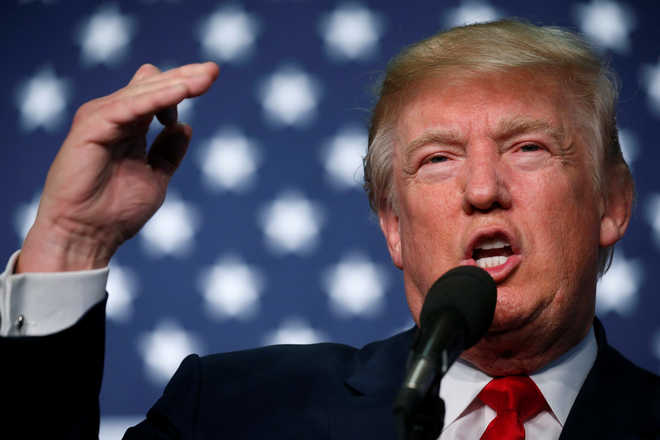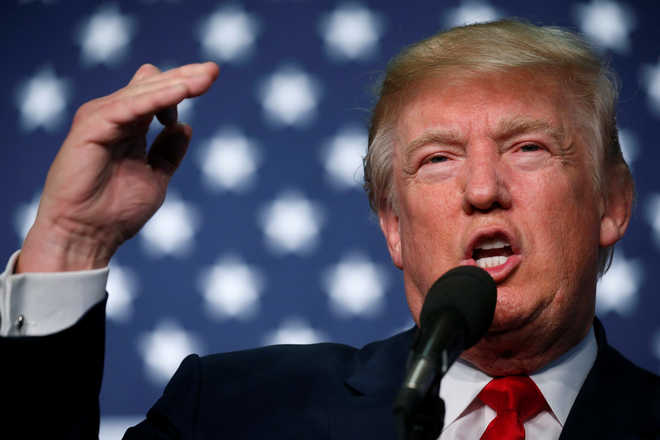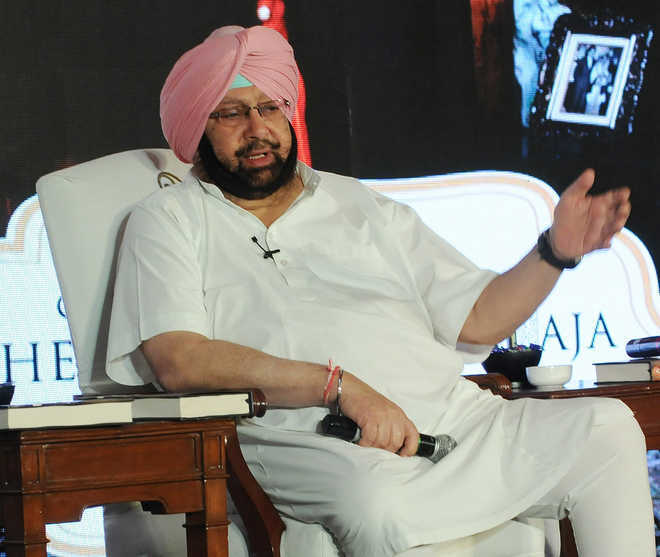
Donald Trump. Reuters file
Washington, January 2
The United States has suspended its USD 255 million military aid to Pakistan for now, the White House has confirmed, saying the fate of such assistance will depend on Islamabad’s response to terrorism on its soil.The confirmation comes on the same day when US President Donald Trump accused Pakistan of giving nothing to the US but “lies and deceit” and providing “safe haven” to terrorists in return for USD 33 billion aid over the last 15 years.“The United States does not plan to spend the USD 255 million in FY 2016 in Foreign Military Financing for Pakistan at this time,” a senior administration official told PTI on condition of anonymity.“The President has made clear that the US expects Pakistan to take decisive action against terrorists and militants on its soil, and that Pakistan’s actions in support of the South Asia Strategy will ultimately determine the trajectory of our relationship, including future security assistance,” he said.
(Follow The Tribune on Facebook; and Twitter @thetribunechd)
The US administration continued to review Pakistan’s level of cooperation, the official said.Earlier in the day, US President Donald Trump, in his first tweet of the New Year, blasted the Pakistan leadership by saying that they had given America “nothing but lies and deceit” despite having received more than USD 33 billion in the last 15 years.“They give safe haven to the terrorists we hunt in Afghanistan, with little help. No more!” Trump said, clearly indicating that Pakistan would no longer receive any security aid from the US till the time it saw a change in behaviour from them in fight against terrorism.Within hours, the Pakistani Defence Ministry fired back alleging that it had got “nothing but invective and mistrust” for all the actions it took in support of America’s war against terrorism.“Pak as anti-terror ally has given free to US: land & air communication, military bases & intel cooperation that decimated Al-Qaeda over last 16yrs, but they have given us nothing but invective & mistrust. They overlook cross-border safe havens of terrorists who murder Pakistanis,” the Pakistan Defence Ministry said in a tweet.Trump who returned to the White House from Mar-a-Lago in Florida where he spent his Christmas and New Year vacation did not respond to shouted questions from reporters on “what is your plan on Pakistan?”Several US lawmakers came out in support of Trump adopting a tough approach on Pakistan.“I support the decision today by President Trump to end aid to Pakistan,” Republican Congressman Markwayne Mullin from Oklahoma said.“You’re either with the US, or against us. We will always help our friends, but for too long, the US has propped up countries that do not share our goal to end terrorism. I’m proud to see our President take bold steps to put America first,” Mullin said.“I couldn’t agree more,” tweeted Senator Rand Paul from Kentucky. “I’ve been fighting to end aid to Pakistan for years and will again lead the charge in the Senate,” said Paul.Samantha Vinograd, CNN’s national security analyst spoke in favour of Trump’s move.“As a way to make it clear to the Pakistanis that enough is enough, if President Trump actually follows through, it could be an effective move,” she said in an opinion piece published on the CNN website.“It isn’t the only step by any means, but it could be the right one,” she said.“Great start. Why give millions to countries who would harbour our enemies?” Trump’s son Donald Trump Jr tweeted on Monday. PTI



























































 HT PHOTO
HT PHOTO
























































